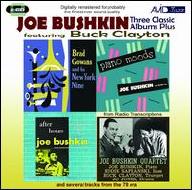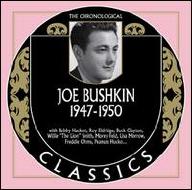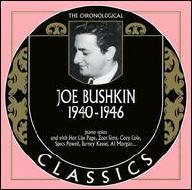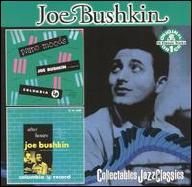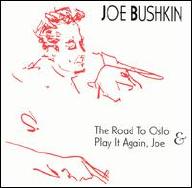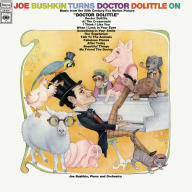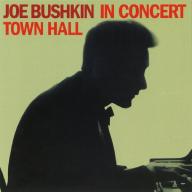After gracing cornetist Muggsy Spanier's 1939 classic Relaxing at the Touro with his elegant, ethereal touch, Bushkin joined Dorsey's orchestra, with whom he would make in excess of 100 records, many of them featuring bandmates Frank Sinatra and drummer Buddy Rich. He also wrote the lovely Oh, Look at Me Now, which topped the Hit Parade in early 1941 on its way to becoming Sinatra's first blockbuster. Bushkin left Dorsey in 1942, spending the next four years playing trumpet in the U.S. Army Air Corps band. Upon returning to New York he worked with composer David Rose, and in 1946 he replaced Mel Powell in Goodman's new band. Creative differences with Goodman drove him out of the lineup a few months later, however, and in 1947 Bushkin signed on with tenorist Bud Freeman for a tour of Brazil. Over the years he made several contacts in Broadway circles, and in 1949 he was hired to score Garson Kanin's +The Rat Race, eventually joining the cast full-time (playing a bandleader, a role he'd yet to assume in real life). The following year Bushkin also mounted the first of several extended engagements at the midtown jazz club the Embers, where he played alongside Milt Hinton, Buck Clayton, and Jo Jones. In 1950 he recorded his first solo LP, the Atlantic release I Love a Piano, and the year following he reunited with Sinatra, leading the singer's band during a run at New York's Paramount Theater. In 1953 he traveled to England on a planned three-week vacation that instead lasted all of five months, returning to the U.S. only to join Louis Armstrong His All-Stars, with whom he also recorded.
With Midnight Rhapsody, the title song from his 1955 solo LP, Bushkin scored a minor hit -- over the years he authored a handful of original songs, including the novelties There'll Be a Hot Time in the Town of Berlin and Ain't Been the Same Since the Beatles, but would remain far better known as a performer than as a composer. His bands were a staple of the Manhattan nightclub circuit throughout the '50s and '60s, and he became something of a socialite, eventually amassing enough money to enter semi-retirement. Bushkin and his family relocated to London in 1969, and upon returning stateside two years later settled in Santa Barbara; in 1975, Bing Crosby lured him back out on the road, and he served as the featured soloist on the legendary crooner's final world tour, a series of dates that culminated in a late 1976 run on Broadway. Bushkin spent his final decades picking and choosing his gigs with the utmost care, heading New York piano bars including Michael's Pub, the St. Regis, and the Carlyle; he also scored and performed in the revue +Swinging on a Star, and mentored a new generation of jazz musicians including cornetist Warren Vaché, Jr. He died of pneumonia on November 3, 2004, just four days shy of his 88th birthday. ~ Jason Ankeny, Rovi


